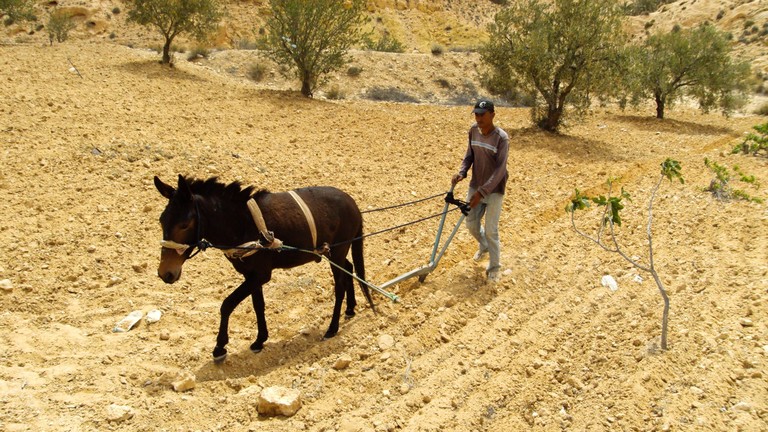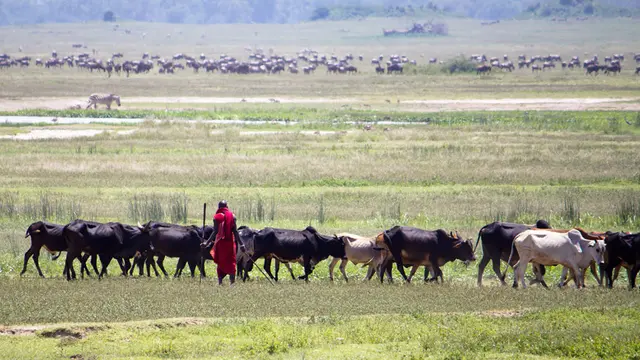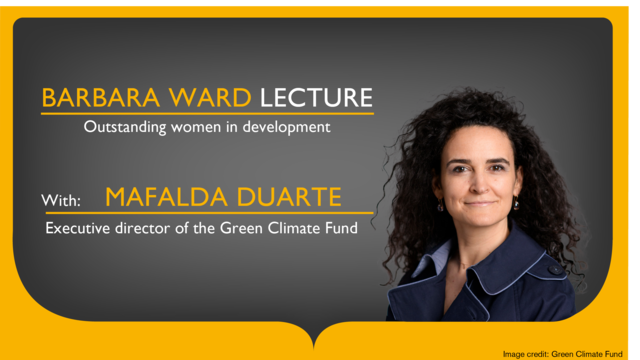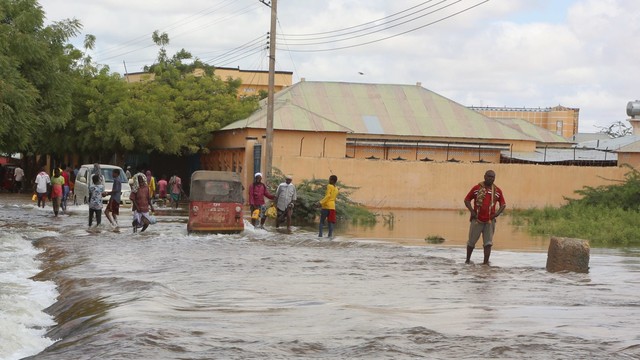Drylands and climate-resilient development – valuing climatic variability
This Africa Climate Week side event on 29 September 2021 reflected on what it means to deliver integrated approaches to climate resilient development in Africa’s drylands.

A farmer in Tunisia uses horse and plough to increase water infiltration into the soil (Photo: Cyprien Hauser, CC BY-ND 2.0)
For too long, traditional discourse on African drylands has put the focus on the idea that drylands are fragile and degraded environments. These conventional narratives have also framed the climatic and environmental variability of these environments as a problem that needs to be addressed.
However, these perspectives fail to acknowledge the essential point that variability is an inherent characteristic of the drylands and that dryland populations have developed institutions and strategies to manage and take advantage of this variability.
This Africa Climate Week side event presented and discussed an alternative perspective to development in drylands through the lens of valuing variability.
During the session, speakers argued how local populations, such as pastoralists, value variability and how they have developed strong production systems that are integrated into international value chains.
They also laid out how valuing variability could be integrated into local government planning and devolved climate finance mechanisms, and therefore how the international donor community can better support climate-resilient development in the drylands.
This event was organised by IIED, Arid Lands Development Focus (ALDEF), Coalition of European Lobbies for Eastern African Pastoralism (CELEP), Dynamic Agro-pastoralist Development Organisation (DADO), Kenyatta University and Resource Conflict Institute (RECONCILE).
The side event was sponsored by the BRECcIA, a United Kingdom Research and Innovation (UKRI) Global Challenge Research Fund (GCRF) programme that aims to strengthen research capacities in three sub-Saharan African countries (Ghana, Kenya, Malawi) leading to positive policy/practice change for sustainable water and food security in the drylands. Under BRECcIA, IIED and Kenyatta University are co-developing training resources based around the valuing variability concept, targeted at both development practitioners and professionals, and academic audiences.
Speakers
- Professor Joy Obando, department of geography, Kenyatta University, Kenya
- Dr. Fiona Ngarachu, researcher, Kenyatta University, Kenya
- Ahmed Ibrahim, Arid Lands Development Focus (ALDEF)
- Saverio Krätli, Coalition of European Lobbies for Eastern African Pastoralism (CELEP)
Session agenda
- Introduction and discussion of the objectives and background, by Professor Joy Obando
- Presentation on valuing variability in Africa’s drylands and implications for climate-resilient development, by Saverio Krätli
- Presentation on dryland populations valuing variability: examples of using climate and environmental variability to thrive and develop sustainable production systems in the drylands, by Dr Fiona Ngarachu
- Presentation on implementing the devolved climate finance mechanism in the drylands of Kenya – a case study from Wajir County, by Ahmed Abdi Ibrahim
- Group discussion: guided participant conversations on the concepts, examples and practical application of the valuing variability approach
- Plenary session for reflections, comments and conclusion, led by Obando
The event will also feature a video proposing an International Year of Rangelands and Pastoralists.
IIED events newsletter
Sign up to our mailing list for updates and invitations to events throughout the year, including webinars, critical themes and debriefs.
Contact
David Pertaub (david.pertaub@iied.org), researcher, IIED's Climate Change research group



